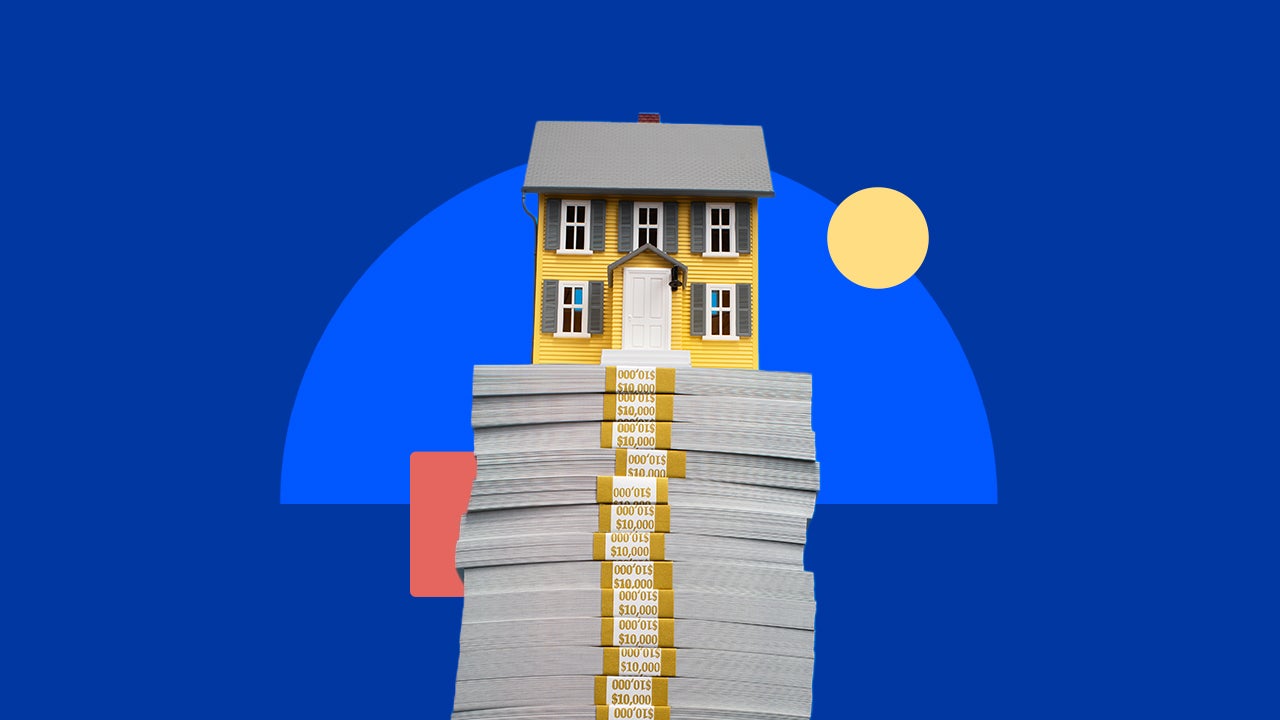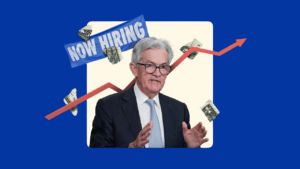The ‘Silent Recession:’ Economists say the economy is strong, but most Americans feel like they’re living in a downturn

In all of Petra Gonzalez’s 13 years heading operations at a local deli just outside of Lansing, Michigan, she’s never seen the cash register so empty.
It’s not that people aren’t dining in for pastramis or the restaurant’s signature fried egg roll reubens. The shop is even busier today than before the pandemic, Gonzalez has observed. Instead, she notices that her patrons are turning more to credit cards. Five days a week for the past six months, her supervisor has had to take cash out of the bank just to restock the registers after paying the staff.
Gonzalez says she hears from customers that they’re saving all the cash they can for emergencies. They also likely just don’t have the funds to afford what they used to, she speculates. Even Gonzalez’s deli has had to raise prices after the post-outbreak price surge.
Economists are closing out 2023 pleasantly surprised that the most widely forecast recession in modern memory never showed. But to Gonzalez, it’s scenes like these in her restaurant — serving customers, wrapping sandwiches and swiping credit cards more than 500 miles away from where policymakers on the Federal Reserve have risked a slowdown to bring down inflation — that have her believing the downturn has already begun.
She’s certainly not alone. Almost 3 in 5 (or 59 percent) of adults feel like the U.S. economy is in a recession, with 31 percent strongly agreeing, according to a new survey from Bankrate.
Most adults agreed the economy was in a downturn, regardless of income, age, region, gender and race. Almost the same amount of those in the lowest-income households (60 percent of those earning under $50,000 annually) say they feel like the U.S. economy is in a recession as those at the opposite end of the spectrum (61 percent for those earning $100,000 or more annually).

Many Americans across the U.S. are even coming up with a name for when they feel deceived by national numbers: “silent recession.” Videos about the topic have gone viral on TikTok and Instagram. Almost every month this year, searches for the term have spiked. “Quiet recession,” however, is Gonzalez’s phrase of choice.
“I call it a quiet recession because not many people are talking about it, but everyone is feeling it,” she says. “I interact with a lot of different people from different walks of life, and even people who are making $75,000 to $100,000 a year are saying, ‘Everything is going up. I want to do this, but I can’t because my money is going to my bills or paying back my credit cards.’ I feel like it doesn’t really matter the status of your financials. It’s just bad, and everyone is feeling it.”
Americans say inflation and rising interest rates are why the economy feels tough
Americans may be disputing the economy’s strong appearance on paper because 2 in 3 (or 66 percent) say the economic environment has negatively affected their finances — a share that jumps to 85 percent for the Americans who say they feel the economy is in a recession, the poll also found.
Meanwhile, half of Americans (50 percent) say their overall financial situation is worse today than it was three years ago in November 2020 — when the economy was in the middle of the coronavirus pandemic, according to a separate Bankrate report published in November.
A large part of that is because inflation is eroding Americans’ safety nets. More than 4 in 5 Americans (81 percent) say they did not increase their emergency savings this year, according to a Bankrate poll published in October. Two-thirds of them (66 percent) say economic factors such as inflation, rising interest rates or a change in their employment status or income were among the reasons why.
Nearly 1 in 3 (or 32 percent) say they have less emergency savings now than at the start of 2023, while 20 percent had no savings at the start of the year and still none today, Bankrate’s October poll also found.
Most Americans aren’t looking at the economy in terms of the definition of recession that economists or business leaders would use. They look at the performance of the economy as they perceive it relative to their own personal situations.— Mark Hamrick | Bankrate senior economic analyst
But high inflation has also caused Americans to take on more high-cost debt at a time when those financing costs have reached record highs, according to rate data tracked by Bankrate. Almost half (47 percent) of credit card holders say they currently carry debt from month to month, up from 39 percent in December 2021, a July Bankrate poll found.
More than one-third of U.S. adults overall (36 percent) say they have more credit card debt than emergency savings, the highest in 12 years of polling and up significantly from the past two years (27 percent in 2021 and 22 percent in 2022), a February Bankrate poll found.
While Americans say the economy is in a recession, economists disagree
Economists choose a different word to describe the economy: remarkably resilient.
U.S. central bankers have raised interest rates to the highest in 22 years, and consumer sentiment has soured to points not seen since the aftermath of the Great Recession. All recessions since the 1980s have been predicated by a drop in sentiment worth 10 points or more up to 18 months in advance, according to an analysis from labor economists David Blanchflower and Alex Byrson. That timeline would’ve pointed to a recession by the fall of 2021, the researchers said.
That’s the opposite of what’s occurred. Unemployment has held below a historically low rate of 4 percent for 13 consecutive months, the longest stretch since the end of the 1960s, according to an analysis from Claudia Sahm, founder of Sahm Consulting and a former Federal Reserve economist who coined the closely watched recession signal known as the “Sahm Rule.”
Meanwhile, employers have created 14.5 million jobs since 2021. Businesses revived all the 21.9 million positions that they cut during the coronavirus pandemic in just about 2.5 years, a process that took about three times as long coming out of the Great Recession — despite employers cutting less than half as many positions.
All the while, the job market has continued to chug along despite a nearly 6 percentage point drop in the overall rate of inflation, latest Bureau of Labor Statistics figures show. An economist’s first lesson is that the two have an inverse relationship. When one goes up, the other goes down.
The engine of economic growth, consumer spending has outpaced inflation and rebounded at a pace even faster than its pre-pandemic trend, according to data from the Department of Commerce. Segmented off by income, the distribution has been nearly equal, Sahm says. Helping that picture, wages rose faster than prices in the economy’s lowest-paying service sectors, according to a Bankrate analysis from September.
“If we were in a recession, would household consumption have gone up 4 percent in the third quarter of this year? Certainly not. Americans would be without a job,” says Joe Brusuelas, chief economist at RSM. “There’s a reason we don’t let households or middle-level managers define a recession. You’re not talking about economics and finance; you’re talking about public sentiment.”
Still, some economists are perplexed by how low consumer sentiment is despite a stable job market and slowing inflation. Sentiment levels today are almost 30 points off of where they were in the 1980s, an era when unemployment topped 10 percent and inflation blew past 14 percent.
“I would expect people to be gloomy, but they are way gloomier than I can explain,” Sahm says. “You add up the fact that people are still spending, and it’s almost like sentiment is a protest vote or something about the world in general. Frankly, I think COVID came in and destroyed our lives, and people are angry.”
‘I’m still waiting on what normal looks like’
Jonathan Tarver of East Chicago, Indiana, is making almost double what he was earning pre-pandemic. Even so, he feels less financially comfortable.
Tarver thinks a switch flipped during the outbreak-induced recession, as he watched his company cut bonuses and his friends lose work.
“I’m still waiting on what normal looks like,” he says. “When I saw that people who have done everything right — they go to school, get a degree, get a good job in those bullet-proof industries — just weren’t OK, something just went off to say, ‘I’m never going to be in a position where I can’t control my income.’”
The experience ignited him to become an entrepreneur, he says. In 2020, Tarver and his wife took up side hustles to round out their income and help save for their two children, who are 5 and 7. Tarver advises small businesses on the side, while his wife is a real estate agent. The couple also rents out two short-term rental properties in the Chicago area near their home.
“I feel like we don’t have a choice to a certain extent, at least for the goals we have for our children,” he says of working multiple jobs. “It takes a little bit more depending on what your goals are and what you want. Life and living just requires more right now.”

But those financial commitments haven’t been easy recently. Tarver says the pair have made about $7,000 less than what they would have made over the past two years due to a dip in bookings. Meanwhile, their grocery bills for their family of four have almost quadrupled over the past four years, hitting $700 a week from $200 before the pandemic.
Tarver’s experiences with recessions date back even further than the coronavirus pandemic. During the 2008 housing crash, Tarver’s mother lost their family home after her adjustable-rate mortgage surged and her property taxes piled up.
Today’s economy is reminding him of those experiences, he says. For the first time since 2008, Tarver’s mother is about to become a property owner again, swapping her one-bedroom rental for a two-bedroom townhouse after her landlord raised rent to $1,400 a month. Even with mortgage rates holding near the highest levels in two decades, the monthly payment is going to cost about $300 less than if she’d stayed put.
“At two opposite ends of the spectrum of recessions, one pushed her out of a house and the other pushed her into one,” he says.
One of Tarver’s biggest worries is that his mother, who is now 63, may never be able to retire. With the income from his side jobs, he hopes he can support her enough to stop working.
“Maybe an economist will tell me, ‘According to this, it says we’re fine,’ but I would argue the math isn’t adding up,” he says. “It’s almost one of those things where it can’t get any worse than this. Maybe it can, but if you’re already at zero, I don’t know how much lower you can get.”
‘You can’t spend money you don’t have’
Nationwide numbers can often mask individual experiences. The Great Recession, for example, never harmed David Coffey’s finances. He was employed as a teacher and owned a home. This time around, however, he feels the economy isn’t working in his favor.
Coffey and his wife decided to sell their Arkansas home in 2021 and move near his Ohio hometown to be closer to family after their daughter was born. His wife found a job in a lab at a nearby children’s hospital, but Coffey spent months applying for 10 different jobs in the area. As stories of a booming job market and “Great Resignation” of workers dominated headlines, Coffey eventually found a job with the one school that got back to him — the school where he started his career.
“Unless a school really wanted to invest in a veteran, I could not get a job teaching music at a school because I cost way too much money,” he says. “I tried to apply for a bunch of jobs outside my field. What I heard from HR was that I don’t have any experience. What I would ask them is, ‘How am I supposed to get that, if you’re not going to give it to me?’”
They ended up buying a house in an area locals might consider picture-perfect — near good schools, commuting distance to both of their jobs and a stone’s throw away from nearby Cincinnati for weekend visits. Yet, Coffey said he barely had time to be at home with his family. He decided to quit his job and take a part-time retail gig so he could stay with his daughter.
To afford their new single-income lifestyle, they traded their coveted home for a cheaper apartment. They’ve been on the hunt for a home in their price range, and in early December, they closed on one. It’s 100 years old with a crooked frame, and fixing it could cost thousands of dollars. But anything more expensive would’ve required the couple to wipe out their savings and scale back their budget. Important to Coffey and his wife are the occasional date night, where they don’t have to worry how much they spend.
“When you don’t make a ton of money, buying a home is not easy, even when you owned homes and even when you had a career. You can’t spend money you don’t have,” he says. “I can have all these theories about economics, but in practice, it doesn’t always work out that way. Data can be read however you want, but you’re not just reading it with objective fact. You’re reading it with your whole life.”
‘I can’t tell you to work harder. It doesn’t seem fair.’
Shandra Irwin helped Coffey’s family find their latest home. It’s her job as a Realtor that has made the silent recession impossible to deny.
On tours, in the middle of empty kitchens and homes, is where Irwin’s clients tend to reveal their deepest economic worries and troubles.
One couple she remembers most worked with her over a seven-month period to find their dream home. Standing on the front porch of a house they thought was finally the one, they looked back at Irwin with tears of joy.
Their preapproval with the lender, however, had expired. And since rates had surged so much more since their last application, they were denied when they reapplied.

“As a culture, where I’m from, people stay silent because they feel shameful that they don’t feel as able to keep up right now,” Irwin says. “But you get folks alone, where they can disclose those feelings to someone, and they tell you that they work and work and work, that they went to trade schools, that they did all the right things. Yet, when it comes to just basic quality of life, most folks feel like they’re struggling. I can’t tell you to work harder. It doesn’t seem fair.”
Americans are evaluating the economy with different metrics than experts
Americans aren’t wrong for blaming a rising cost-of-living and pricier financing costs as a sticking point for their finances.
The median home price in 2022 was roughly six times higher than median household income when adjusted for inflation. In 1985, it was just about 1.5 times higher.
Meanwhile, a $500,000 30-year mortgage would’ve cost $2,089 in principal and interest back in January 2022, before the Fed started raising rates, according to Bankrate’s mortgage calculator. That monthly payment would now be $3,499 — a 67 percent jump — if a homebuyer locked in a 30-year fixed-rate mortgage at 7.51 percent.
But those two forces aren’t technically in the definition of a downturn, Sahm says. Rather, economists are looking for declines in employment, consumption and hiring across the economy.
The jury is still out on whether the U.S. economy avoids a recession. Economists said in Bankrate’s latest quarterly forecast that the odds of one beginning by September 2024 dropped to 46 percent, still about a coin flip but down from a high of 65 percent in the third quarter of 2022.
How a recession could feel for households depends on its depth and duration. Economists said in Bankrate’s survey that they see unemployment hitting 4.5 percent by next fall. That’s more than half a percentage point higher than today’s current levels — but also the lowest of any modern downturn, should it coincide with a recession. The higher the unemployment rate, the longer it could take for Americans to find a new position, if they do lose their job.
“For some Americans, such a contraction might not either feel or present circumstances that are significantly different than the detrimental impacts of high and sustained inflation,” Hamrick says. “If the recession is short and shallow, it can almost be largely inconsequential, particularly for the majority who retain employment and suffer no interruption or loss or setback in income.”
Feeling cash-strapped in a tough economy? Here’s 5 tips for rebuilding your finances
1. Forget the very word ‘recession’ and focus on what you can control about your finances
The economy might as well be compared to the winds surrounding an airplane. Low unemployment and strong growth are like tailwinds to Americans’ finances — making it easier to find new jobs, seek out higher pay and hit their financial goals.
But the jet stream won’t help travelers get to their destination any faster if they encounter a mechanical issue on their journey. In the same vein, the economy is not the sole determinant of someone’s financial fate.
Unemployment, for example, is never zero given constant churn in the job market. Hiring can slow in some regions but boom in others.
“Everyday people care about their community, their region, their industry, work in their area, where their kids are growing up,” says Yelena Maleyev, an economist at KPMG. “It’s hard to give a lot of things like sentiment and the economy one number because it’s an aggregation of many, many, many numbers that different regions are seeing and feeling.”
Rather than getting swept up in the debate, focus on what you can and cannot control. Americans shouldn’t wait for the economy to turn to take the steps most prudent for their finances: saving for emergencies, advancing in your career and investing for retirement. At any point in the business cycle, unexpected expenses can arise and workers can find new jobs. Downdrafts in the market, meanwhile, can be a significant buying opportunity.
2. Form a ‘personal finance survival kit’ for peace of mind
Tough economies create a feeling of uneasiness, but forming a financial game plan can help provide a sense of stability when things go awry. Think of it as glass you can break in an emergency.
The first question you should ask yourself is how you’d pay for an unexpected expense. Rather than reaching for a credit card, most financial experts recommend an emergency fund. If you’re starting from scratch, look carefully through your budget to find non-essential expenses that you can cut. Cheaper substitutions can also help you free up cash. Remember: Every little bit can make a difference.
But in today’s pricey and high-interest environment, it might make sense to grow your savings account past the typical threshold financial advisors recommend.
“I used to say six to nine months,” says Faron Daugs, certified financial planner, founder and CEO of Harrison Wallace Financial Group. “Now, people want to have a little bit extra closer to that nine month mark of expenses.”
If unexpected joblessness is what you’re most worried about, keep a file handy with all your income, identification and banking documents that you can use to fill out an application for unemployment insurance (UI) in a pinch.
Nearly 2 in 3 (or 64 percent) of adults say they or their household have changed their financial habits because of the economic environment. Those who feel the economy is in a recession say that to an even greater degree: at 81 percent.
3. Keep your cash where it’s rewarded and grows faster
Growing an emergency fund can feel next to impossible when expensive food or gas prices are eating up your budget down to every penny, but taking a step as simple as choosing the right bank account can make the process easier.
Savings accounts at the nation’s top online banks are paying 5 percent a year in interest — or more. That could be an extra $50 a year if you have just $1,000 socked away. For someone who has a larger savings balance of $10,000, those offers amount to an extra $500 a year.
Meanwhile, Bankrate’s picks for the 10 best banks are also now currently paying annual percentage yields (APYs) that top inflation, helping Americans preserve their purchasing power.
Related: Best high-yield savings accounts
4. Don’t expect prices to ever be as cheap as they were pre-pandemic. Instead, focus on boosting your income
Consumers hearing economists talk about slowing inflation might be confused when they go to the grocery store or gas station and see that prices are still much more expensive than they were before the pandemic. But the phenomenon — often referred to as “disinflation” — indicates that prices aren’t rising as quickly as they once were, not that they’re outright falling.
Just 15 of the 303 items tracked in the consumer price index (CPI) were still cheaper in October than they were before the pandemic, including some electronics and airfares as well as transportation services, according to a Bankrate analysis of Bureau of Labor Statistics data.
Economists aren’t convinced prices will ever retreat to the levels they were before inflation first surged. They also caution that it might not be an economic environment a consumer should wish for.
“I would not wish deflation on my worst enemy,” Sahm says. “Deflation would be a broad-based decline in prices. The only time that has happened is in the worst recessions.”
Consumers, however, may start to feel better if their incomes can catch up to the ground that they lost — a process that’s already underway, though could take until the end of the fourth quarter of 2024, according to September projections from Bankrate’s Wage-to-Inflation Index.
Making more money is often the secret to beating inflation. That might involve approaching your employer for a raise. More than two-thirds (or 64 percent) of workers saw a pay increase in the past 12 months, according to a Bankrate survey published in November. Other options could be monetizing a hobby or picking up a side hustle.
5. Keep a close watch on your expenses, but keep a budget for fun, too
When you’re recovering from a tough time or bracing for one in the future, you’ll want to carefully evaluate your spending habits. But just as important as keeping a careful watch on your budget is making sure you’re not depriving yourself. Given just how much money tends to impact Americans’ mental health, a recession or general economy-related anxiety can feel isolating.
When you’re saving for the unexpected, make sure you’re building up a buffer that allows you to still take part in the little things you enjoy. If you set up clear guard rails and know how much you can afford to spend without breaking the bank, you’ll be able to align your spending with what matters most to you — and avoid guilting yourself in the process.
-
Bankrate commissioned YouGov Plc to conduct the survey. All figures, unless otherwise stated, are from YouGov Plc. Total sample size was 2,404 U.S. adults. Fieldwork was undertaken between Oct. 26-30, 2023. The survey was carried out online and meets rigorous quality standards. It employed a non-probability-based sample using both quotas upfront during collection and then a weighting scheme on the back end designed and proven to provide nationally representative results.
Why we ask for feedback Your feedback helps us improve our content and services. It takes less than a minute to complete.
Your responses are anonymous and will only be used for improving our website.





